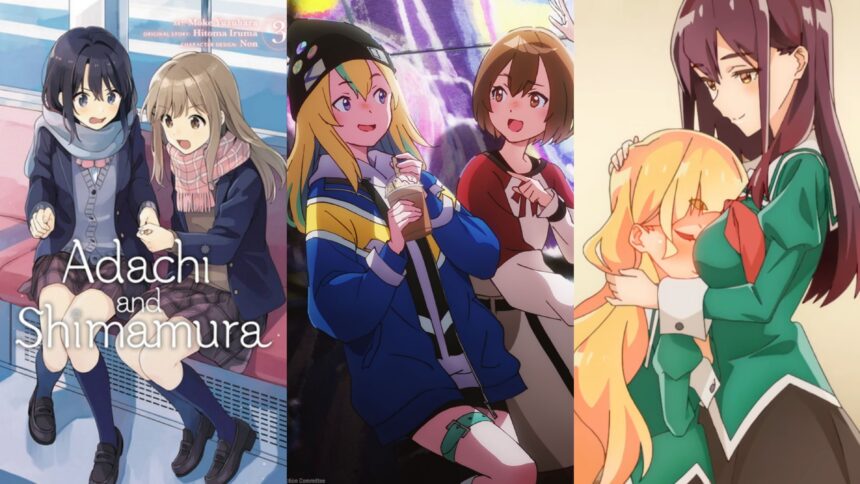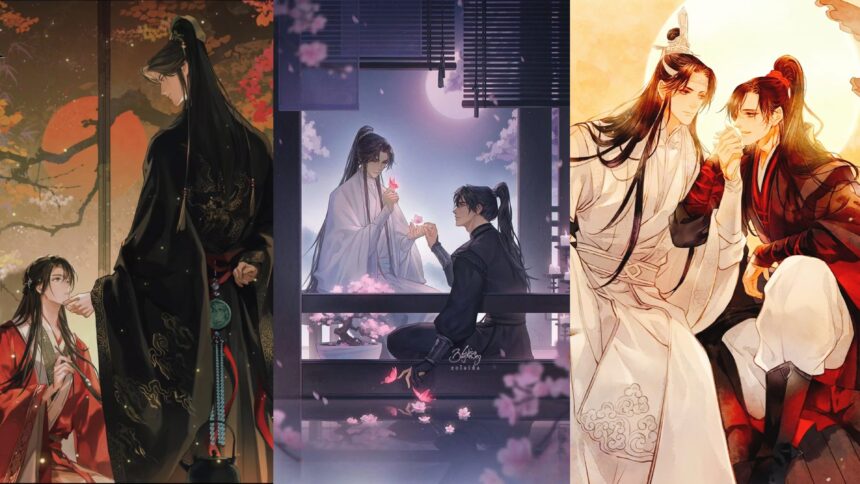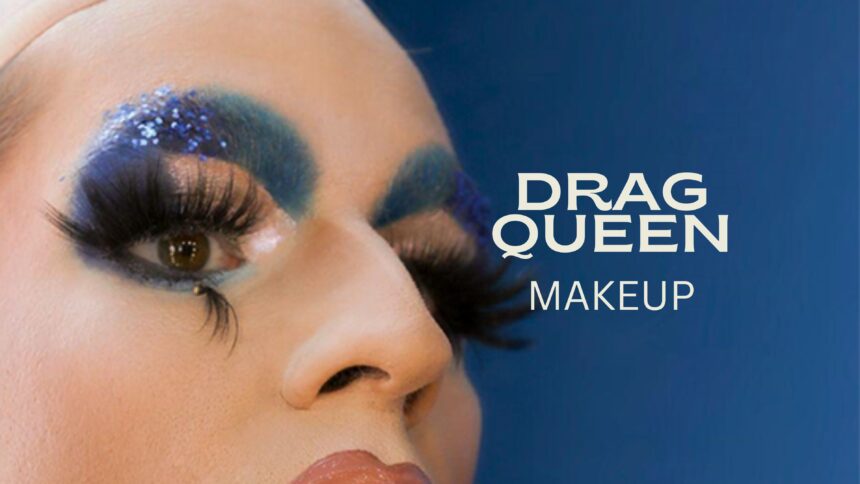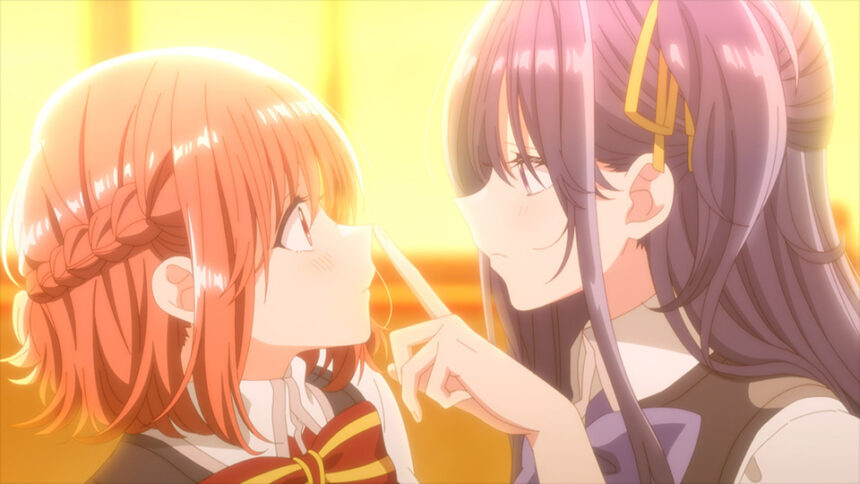Introduction
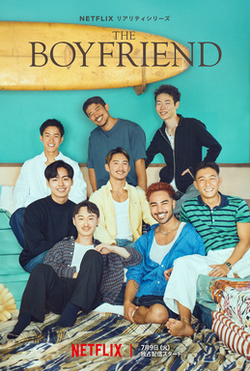
source: https://en.wikipedia.org/wiki/The_Boyfriend_%28TV_series%29
The Boyfriend, which streams on Netflix, is the first LGBTQ+ dating reality show filmed in Japan. It has been hailed as touching, thrilling, and absorbing in equal measure by critics, and has amassed a large and enthusiastic fan following since its debut in July 2024.
Introducing itself as “a story of love and friendship,” viewers will see how the cast develop and react together as they spend a month in one another’s company. Will there be sparks of romance? Will they form deep bonds? And who can sell the most coffee?
Synopsis
Filmed in Tateyama, Chiba prefecture, The Boyfriend consists of a group of gay or bisexual men living together and working as baristas, selling takeaway coffee from a truck near their seaside home, The Green Room.
Show Format
As opposed to other dating shows, known for high stakes drama, shouting matches, and even monetary prizes, The Boyfriend is billed as a much calmer, more relatable reality show. There is a cast, but no ‘contestants,’ as no one is voted off the show, nor is there a prize to win at the end. The cast members can even leave the house for obligations like work, if necessary (an inevitability for those that run their own businesses).
The fact that it is the first gay dating reality show made in Japan has also been a big draw, and issues on LGBTQ+ acceptance are discussed among the cast and the commentators, a panel of five, led by Megumi Yamano. The panel gives its views on the state of LGBTQ+ progress in Japan, as well as their feelings on the contestants and their actions intermittently during the ten episodes.
Because there is no overall prize, there isn’t really any scheming or back-stabbing. Instead, you can enjoy watching The Green Room’s eight residents interact with one another and see their relationships develop – and sometimes regress.
The cast is primarily made up of Japanese men, but includes three cast members with a foreign background: product designer Taeheon is from South Korea, make-up artist Gensei hails from Taiwan, and IT professional Alan was born in Brazil. Among the other cast members, Dai is a university student, Shun is a DJ and an artist, Ryota is a barista and a model, Kazuto is a chef, Ikuo works at a burger shop, and Usak is a gogoboy.
“But wait,” I hear you read, “isn’t that nine cast members? Didn’t you say that The Green Room had only eight people living there?” Dear reader, I am happy to explain myself, but to do so I must warn you that there will be spoilers beyond this point. So if you want the full, unspoiled experience, stop reading here and go watch The Boyfriend: for what it’s worth, I recommend it. For everyone else, read on…
Accessible Reality TV
I should confess at the start that I am not especially au fait with dating reality shows, other than what I can glean from social media, so I was pleased that The Boyfriend would have a slower-paced, more relaxing vibe than what I understand to be the case with, say, Love Island. As a warning, this is not to say the show is not an emotional rollercoaster. Like anyone who watches shows like these, you end up developing favorites you cheer for, and in your mind create villains to root against. Netflix knows what they’re doing, and by now they’re very good at it.
It also, like any reality show, is at the mercy of editors and producers: some cast members will inevitably have interactions that the higher-ups seem to be more interesting than others, and those people will get more screen time. The Boyfriend is no exception. During the first episode, I was impressed by the smaller, balanced cast of five, growing to six and then seven by the conclusion of the first episode. It was nice seeing them divide up chores, bath times, and even discuss their preferred pronouns, notable as personal pronoun usage is much less common in Japan than in languages such as English.
Main Character Syndrome
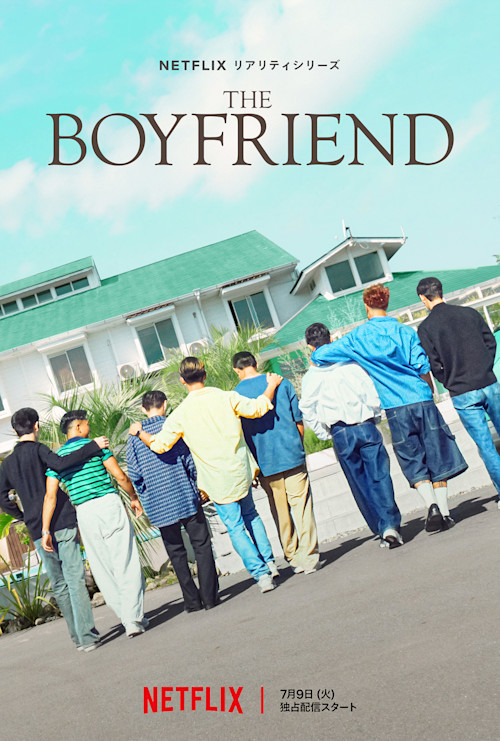
source: https://about.netflix.com/ja/news/the-boyfriend-premieres-july-9
After the first couple of episodes, and the dramatic introduction of Alan to fill the cast out at eight people, two main storylines emerge: Shun and Dai’s will they, won’t they, story that runs throughout all ten episodes, and the dilemmas faced by Kazuto, who is blessed – or cursed – to be pursued at one point or another by almost half of the cast members over the course of the show.
Shun and Dai’s romance takes center stage, especially at the beginning. At first, Dai’s outgoing and bold personality seems to be able to break through Shun’s shy, low-confidence demeanor (including an incredibly daring move where Dai loses a game of rock paper scissors that he initiated, and has to tell someone he trusts who his crush is: he tells Shun that it’s him).
There are some issues that seem to scupper things a little, at the outset, though. When gogoboy Uzak joins the crew after they watch a show of his, Dai gushes a little too hard on how hot he is – with Shun sitting next to him. Then, when Alan is introduced, it turns out that he and Dai have hooked up in the past, which Alan isn’t shy about telling everyone. At first, I felt bad for Shun. It seemed like his interest in Dai couldn’t go five minutes without getting a wrench thrown in.
Nice Guy or Not?
But as the episodes went on, my feelings did a 180. There were warning signs for me when Shun looks through pictures on Dai’s phone without permission, and after coming across some lewds, concludes that Dai is a playboy because he must be using dating apps. Shun, I don’t think you can complain about someone using a dating app when you are literally on a dating show. After this, Shun continually toys with Dai’s feelings.
Following a date, Shun tells Dai how unhappy he was that Dai was enthusiastically enjoying their trip to the aquarium, and despite their blossoming relationship being obvious to others, Shun denies that Dai means anything. Finally, Shun tells Dai that he doesn’t have romantic feelings for him, and he just wants to be friends, before constantly flirting with him, and getting angry when Dai flirts back.
I found myself cursing him for hurting Dai’s feelings, and feeling heartbroken for poor Dai, who always forgave Shun for any and all of his cruelty, from publicly calling him out as annoying and not wanting to be near him because he didn’t wear a shirt Shun gave him, to giving him a dressing down about his personality and denying Dai an opportunity to defend himself.
In the end, the two do make it out of the show as a couple, and are still dating today. Apparently, they are still arguing every day. I hope it works out, out of my sympathy for Dai.
The Popular Chef
Kazuto has a very different problem. He makes an incredible entrance on day one, showing up with a bonito fish and making dinner for everyone, and I immediately thought he was going to be popular. But I couldn’t have imagined that at various points, he would be courted by Uzak, Alan, Ryota, and Ikuo. And while one of my notes watching the show was a facetious “he can’t keep getting away with this!,” it really does seem to take a toll on him.
One night in particular seems difficult, as once he returns from his day working at the coffee truck, Kazuto takes Alan aside to let him know that he thinks he is developing feelings for him – feeling Alan reciprocates both in private and even declares in the group dinner.
Uzak, who has been going through a tough time after being told off the day before by Dai due to his relatively expensive chicken (as a professional dancer, he needs to protein) eating into the group’s food budget, decides to risk it all and tells Kazuto that he’s liked him since day one. Kazuto is blind-sided but seems happy: Uzak gives off a strong and confident vibe on stage, but in private is a little timid and unsure of himself. Kazuto really likes this duality, and finds it adorable… but he thought of Uzak as out of his league, and their work schedules meant that they rarely had chances to interact in the house.
Sadly, Uzak had to leave the house entirely shortly afterwards thanks to his job, to be replaced by Ikuo, dooming my favorite potential couple. Back to the night, as Kazuto is reeling from Usak’s confession, Ryota also throws his hat into the ring, and confesses his feelings to Kazuto. Kazuto thanks him politely for his honesty, then returns to his room, emotionally exhausted.
Ikuo too, takes a shine to Kazuto when he joins, but eventually moves closer to Dai, hoping to either save Dai and Shun’s relationship, or save Dai from Shun.
Kazuto eventually becomes not just emotionally but physically exhausted: on the days away from the house, he is working in his restaurant. In his days staying at The Green Room, he is almost always working the coffee truck as half the cast wants to get close to him. “What, am I the mascot!?” he cries at one point. And I totally get it. While it might seem like the thing of manga for one man to be the center of attention of nearly half a dozen other young, attractive guys, the polite, kind, and thoughtful Kazuto knows he has the unenviable task of having to break hearts as gently as he can. In the end, he leaves the house with Alan, though it appears that today they are just friends.
The Other Storylines
With these two storylines taking up the vast majority of the screen time, this means that some other people go a little overlooked. Ikuo’s late entry means that, although he intersects both of the main narratives, his screen time is necessarily limited. Gensei mistakenly starts the show thinking Ryota is crushing on him, and can’t quite let it go. Aside from a heartbreaking moment when Ryota makes his “Gensei-exclusive” cafe mocha for – you guessed it! – Kazuto, Gensei is not afforded as much attention, as his relationship to the ongoing plots is more tangential. Eventually, he too leaves early.
For me, the most surprising absence was that of Taeheon. One of the original five members, he gets easily the least time dedicated to him and his progress. This is probably partly because he doesn’t have any romantic entanglements with anyone (a bit surprising, as I thought him very handsome). This might be because, as one of the older cast members, he may be looking for something very different.
But he is also one of the more thoughtful of the group: he has a (slightly heated) debate with Dai about the level of acceptance of LGBTQ+ people in society, with Dai taking the view that things aren’t that bad and you can’t change the world, while Taeheon instead believes that people have an obligation to try and change the world to be a better, more accepting place. He is also, along with Alan, one of the best dispensers of advice and support on the show. And while he doesn’t make any romantic connections, his time on the show and his friendships with the other men give him the confidence to finally come out to his parents, in possibly the most emotionally significant denouement as the boys leave The Green Room for the last time.
Final Thoughts
The Boyfriend isn’t the kind of show I normally watch, but I really enjoyed it. The emotional highs are very high, the gut punches stay with you, and the overall honesty, sweetness, and kindness of the cast is a wonderful palate cleanser in this more cynical age. Definitely add to your Netflix queue. Just don’t ask me to support Shun, I won’t do it.


